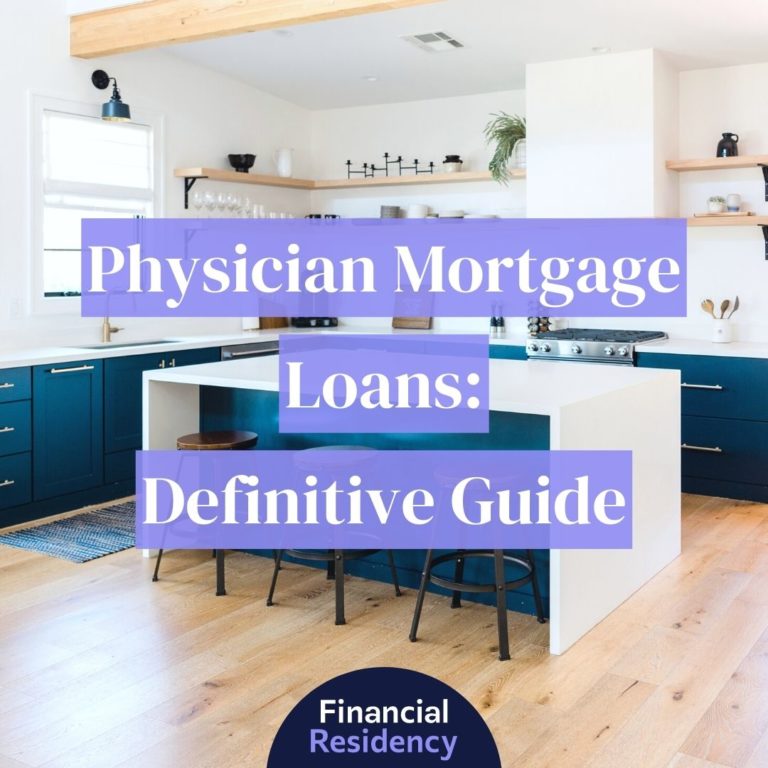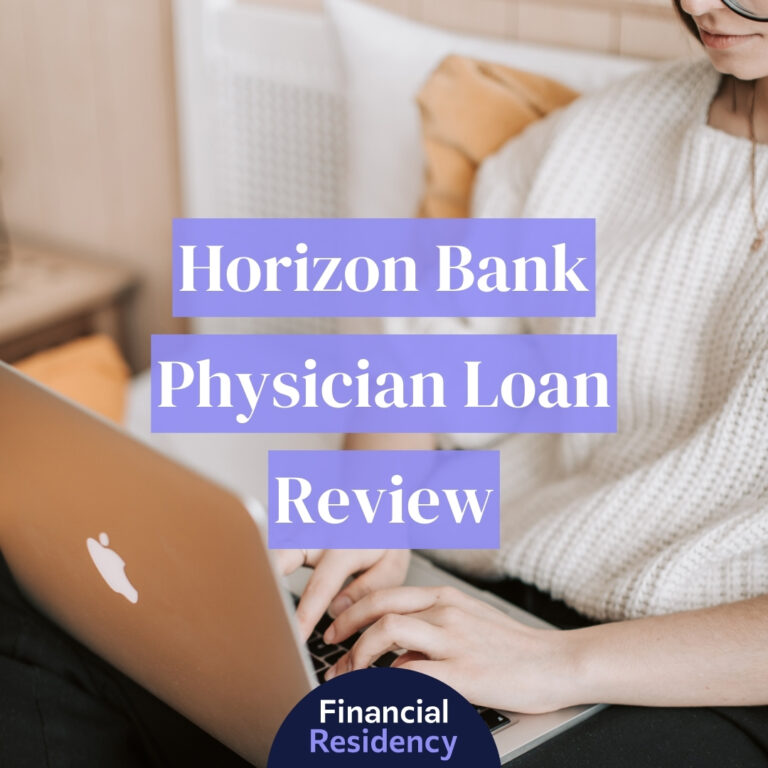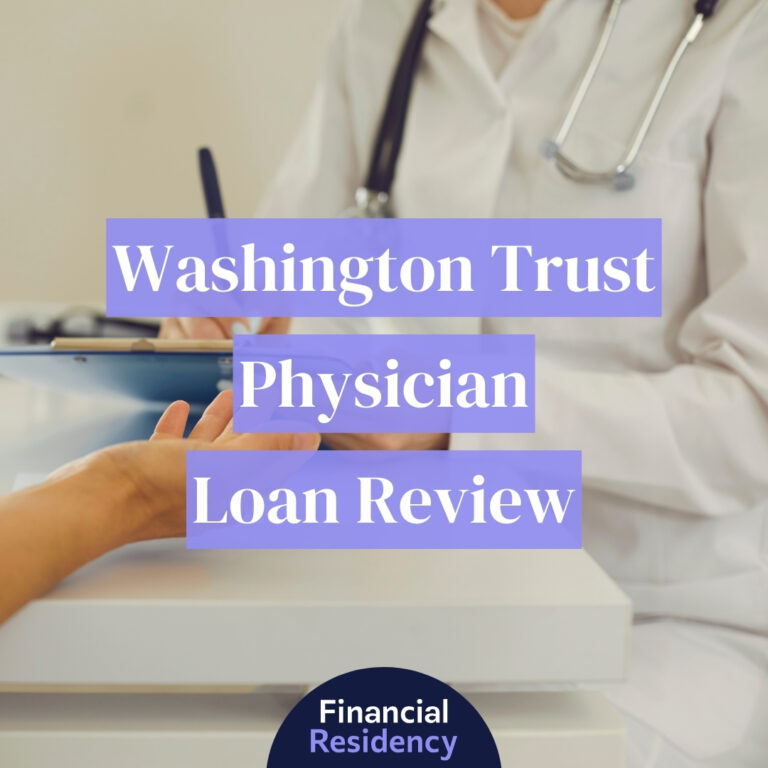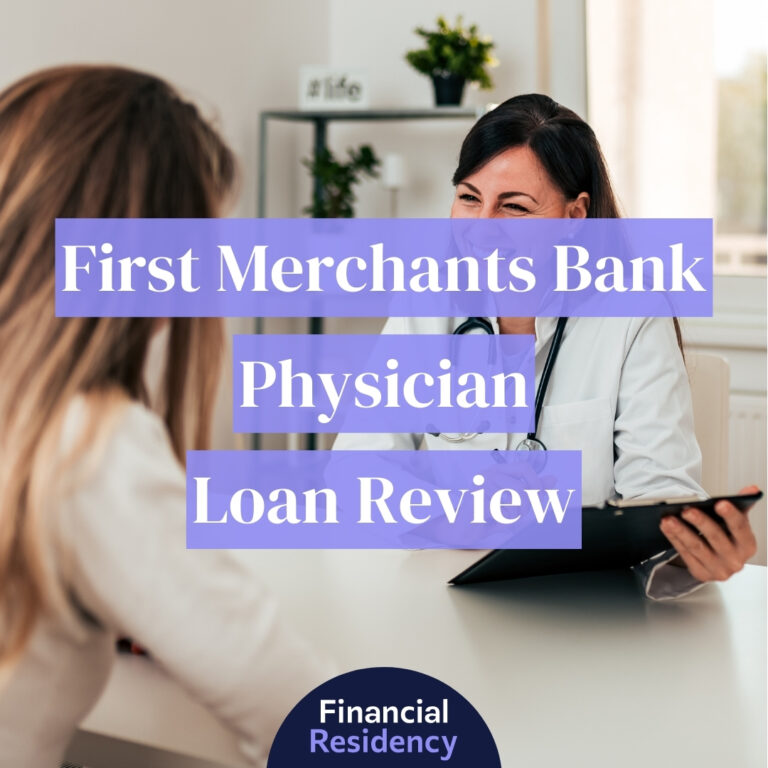If you’re a medical professional dreaming about purchasing a home or refinancing your existing mortgage, finding the best physician mortgage loans in Arizona can make a big difference in the amount you qualify for.
Whether you’re beginning your residency program or well on your way as an attending, more than 18,800 physicians currently practice medicine in the state, which allows its residents access to top-of-the-line treatment and primary care.
Arizona has experienced tremendous growth over the last 10 years. It’s one of the top 15 most populated states in the country. The healthcare landscape is changing in the state and continues to provide its residents with many options.
Getting connected with a knowledgeable lender who understands the doctor home loan process is the first step to setting down strong roots in your community, building personal equity, and enjoying the fruits of your labor.
We’ve vetted dozens of banks and credit unions and we’ve called out the notable features of the best physician mortgage loans in Arizona, so you can make the best choice for your needs.
10 Best Arizona Physician Home Loan Lenders
Here are the top physician mortgage loan lenders in AZ:
- Alerus Financial
- BMO Bank
- Citizens Bank
- Evolve Bank & Trust
- First Horizon Bank
- Flagstar Bank
- KeyBank
- Regions Bank
- UMB Bank
- US Bank
Discover The Best Lenders in Arizona Answer just a few questions about your career, where you're buying, and how much you want to borrow. Our service will then show you the exact programs you're eligible for from vetted physician loan specialists who will guide you through every step of the process – obligation-free!
1. Alerus Financial
- BBB Grade: A+
- JD Power Score: N/A
Alerus Financial extends its Doctor Loan Program to doctors and dentists currently in residency or up to four years of practice.
Many physician loans are geared toward early-career medical professionals, but the typical age limit is 10 years. Alerus Financial is a bit more restrictive in this sense.
It offers the following down payment options:
- 0% on loans up to $750,000
- 5% on loans up to $1 million
- 10% on loans up to $1.5 million
Borrowers may choose between fixed and adjustable-rate mortgage products.
The Doctor Loan Program allows new physicians to be competitive in the housing market by providing a $20,000 seller guarantee.
Any seller that agrees to work with a physician backed by the Doctor Loan Program will be protected in case the borrower doesn’t close on the loan by the pre-approval letter’s expiration date.
Learn More:
2. BMO Bank
- BBB Grade: A+
- JD Power Score: 805
BMO Bank (formerly BMO Harris Bank) will provide mortgages up to $2 million to qualified medical doctors (MD), doctors of osteopathic medicine (DO), and dentists (DMD/DDS) through its Physicians’ Program.
The Physicians’ Program will provide financing to physicians interested in purchasing or refinancing a single-family home, duplex, condominium, or townhouse.
The program is open to borrowers at any stage in their careers, but physicians who have been practicing for more than 10 years will need a down payment of at least 10% to qualify.
BMO offers three financing options in Arizona:
- 100% financing up to $1 million
- 95% financing for $1 – $1.5 million
- 90% financing for $1.5 – $2 million
All down payment options exclude private mortgage insurance (PMI), which can reduce your monthly payments by hundreds of dollars.
Loans may be structured with fixed or variable interest rates, but your options may vary depending on your credit profile.
Borrowers who enroll in AutoPay from an existing BMO Bank account will be eligible for a $500 closing cost discount.
Student loans will also be considered differently than conventional mortgages, but the lender is vague about how it calculates the debt-to-income (DTI) ratio. Instead, it shares that its underwriters will use flexible DTI guidelines.
One of BMO Bank’s qualified loan officers can illuminate how the program can meet your needs.
Learn More:
3. Citizens Bank
- BBB Grade: A+
- JD Power Score: 818
Citizens Bank extends its Doctor Mortgage Loan Program to medical doctors, doctors of osteopathic medicine, and dentists who are within their first 10 years of practice.
The program has a maximum loan amount of $1.5 million and down payment options vary depending on the amount you borrow.
For example, loans up to $850,000 only require a 5% down payment, but loans up to $1 million will require an 11% down payment.
Interns, residents, and fellows are also eligible for the program, but the total loan amount is based on your license. Licensed medical residents can borrow up to $600,000, but unlicensed medical professionals have a loan limit of $450,000.
All down payment options exclude PMI.
Loans must be used to purchase or refinance a primary residence in a state where Citizens Bank operates.
Learn More:
4. Evolve Bank & Trust
- BBB Grade: A+
- JD Power Score: N/A
Evolve Bank & Trust’s doctor mortgage loan program will provide up to $2 million in financing to the following medical professionals:
- Chiropractor (DC)
- Dental Surgeons (DDS)
- Dentists (DMD)
- Medical Doctors (MD)
- Nurse Anesthetist (CRNA)
- Nurse Practitioner (NP)
- Optometrist (OD)
- Pharmacists (RPH/PharmD)
- Physician’s Assistant (PA)
- Podiatrist (DPM)
- Veterinarians (DVM)
All down payment options waive PMI requirements.
Borrowers can access up to $1 million without a down payment. Loans up to $1.25 million will require a 5% down payment and loans up to $1.5 million will require at least 10%.
A home loan of $2 million will require at least 15% down.
Doctors who are relocating for a new job or haven’t yet started working can qualify for the program with a valid employment contract dated within 90 days of closing.
Learn More:
5. First Horizon Bank
- BBB Grade: A+
- JD Power Score: 825
First Horizon Bank limits the information it publishes online about its home financing options for medical professionals to encourage borrowers to contact a Private Client Services Relationship Manager for more information.
With that said, there are a few important details to consider before deciding if a First Horizon Bank physician loan could be right for you.
The program is open to medical doctors, doctors of osteopathic medicine, podiatrists, and oral surgeons.
All borrowers will be required to hold a First Horizon Bank account enrolled in AutoPay and a 670 minimum credit score to qualify for financing.
The program has a maximum loan amount of $2.5 million. Some borrowers will qualify for 100% financing, but it will depend on the loan amount.
Learn More:
6. Flagstar Bank
- BBB Grade: A-
- JD Power Score: 781
Flagstar Bank’s Professional Loan program is open to more than just medical professionals. The following professional designations are included:
- ATP Pilot
- Attorney
- Certified Public Accountant (CPA)
- Clinical Nurse Specialist
- Doctor of Dental Medicine (DMD)
- Doctor of Dental Surgery (DDS)
- Doctor of Ophthalmology (MD)
- Doctor of Optometry (OD)
- Doctor of Osteopathy (DO)
- Doctor of Pharmacy (PharmD)
- Doctor of Podiatric Medicine (DPM)
- Medical Doctor (MD)
- Medical Resident (Educational License)
- Nurse Anesthetist (CRNA)
- Nurse Practitioner (NP)
- Physician Assistant (PA)
- Registered Nurse (RN)
- Veterinarian (DVM)
Borrowers must be within the first 10 years of their careers and have a 720 minimum credit score to qualify for 100% financing on loans of up to $1 million. The program will lend up to $1.5 million with low down payment options. All down payment options waive PMI requirements.
Unlike other physician loan programs, the Professional Loan program only offers adjustable-rate mortgages. ARMs can be advantageous for high-earners because the introductory rate is often competitive and at times, a later interest rate can be lower than the rate at the time you originally took out the loan.
Learn More:
7. KeyBank
- BBB Grade: A+
- JD Power Score: 794
KeyBank’s Medical Professional Mortgages are open to practicing physicians and dentists, including medical doctors, doctors of osteopathic medicine, podiatrists, dentists, and dental surgeons. Retired medical professionals aren’t eligible.
While some programs stipulate that borrowers must be within 10 years of completing residency, KeyBank doesn’t have such an age limit.
Loans may be used to purchase or refinance an owner-occupied primary residence or second home. Second homes are rarely included in physician loan programs.
However, loans are restricted to attached and detached single-unit family homes, townhouses, and condominiums.
The program will provide up to a maximum loan amount of $3.5 million. Some financing options won’t require a down payment, but the exact loan-to-value varies based on the borrowers’ credit profile and location.
Loans may also be structured with fixed or variable interest, depending on the borrowers’ financial needs. Private mortgage insurance isn’t required.
Learn More:
8. Regions Bank
- BBB Grade: B+
- JD Power Score: 836
Regions Bank extends its Doctor Mortgage Program to current residents, fellows, medical doctors, doctors of osteopathy, and dentists who are interested in purchasing or refinancing their primary residence.
The program will provide up to $750,000 without a down payment or up to $1 million with just a 5% down payment. It will also make special credit allowances for borrowers with deferred student loan payments. Waiving PMI may also keep monthly mortgage payments more affordable than conventional loans of the same amount.
Doctors who are starting new jobs can also use their employment contract and the Loan Tracking Status Portal to close on their homes before starting work.
The Loan Tracking Status Portal allows busy physicians to seamlessly upload requested documents while ensuring they are on track to close.
Learn More:
9. UMB Bank
- BBB Grade: A+
- JD Power Score: 791
UMB Bank’s physician mortgage loan is unique in that it restricts certain financing options to attending physicians. The following medical designations are eligible for the program:
- DO
- MD
- DMD
- DDS
- OD
- PharmDs
Attending physicians can put 0% down on loans up to $1 million or 5% down on loans up to $1.5 million. Loans up to $2 million will require a 10% down payment.
Earlier career physicians aren’t excluded from the program, but they will have to put 10% down regardless of the total loan amount. The program doesn’t have an age limit.
Learn More:
10. U.S. Bank
- BBB Grade: B+
- JD Power Score: 820
U.S. Bank’s physician mortgage loan program is open to current residents, medical doctors, and doctors of osteopathic medicine. Unlike many other programs, it does not include dentists.
Qualified MDs and DOs can borrow up to $2.5 million and require down payments depending on the total loan amount. Loans up to $1 million require a 5% down payment but loans up to $2 million may require up to 15% of the home’s purchase price.
Student loans aren’t excluded from DTI calculations, but the terms are more lenient than conventional mortgages.
Borrowers on income-driven repayment plans can use their monthly payment amount or borrowers with deferred student loans can use 2% of their total loan balance to calculate DTI.
Applicants who open a Platinum Checking Account can receive a 0.25% lender credit up to $1,000, which can reduce the amount of cash required to close on the loan.
Learn More:
How Physician Mortgage Loans Work in Arizona
Physician mortgage loans aren’t always publicly advertised by lenders in Arizona, but many banks and credit unions have started to offer them to high-earning professionals.
Despite the implications of the name, physician loans aren’t exclusively available to physicians.
Each program will have its own terms, but many programs are open to medical doctors, doctors of osteopathy, and dentists.
Some programs will also include nurse practitioners, physician assistants, veterinarians, and other advanced degree professionals.
More Lenient
Doctor mortgage loans have more lenient qualifications than conventional mortgages.
A conventional loan will require at least a 3% down payment plus closing costs, at least two years of stable income history from the same field, and a debt-to-income ratio of less than 43%.
Physician loans reduce these requirements by offering 95–100% financing in many cases, accepting employment contracts as proof of earning potential, and excluding student loans from DTI calculations.
Constraints
However, physician loans have a few constraints as well. A conventional loan requires a 640 minimum credit score, but physician loans will typically require a 700 minimum score.
They will also restrict loans to the purchase or refinancing of a primary residence. In some cases, lenders will also stipulate the kind of property you can purchase.
For example, you may be able to purchase a detached single-family residence, but condos may not always be approved.
Higher Financing Limits
Physician mortgages will also finance higher loan amounts than many conventional loan products. In Arizona, conforming loans max out around $720,000, but physician loans are non-conforming loans.
Non-conforming loans are more likely to work with the unique needs of the borrower and provide more flexible underwriting guidelines, which can make it easier to qualify.
We recommend discussing your financing options with a loan officer so you can find the best physician mortgage loan in Arizona for your needs.
Pros and Cons
There are pros and cons to any financial decision. We’ve prepared a few notable facts to consider while you’re shopping for a physician mortgage loan in Arizona.
Pros
- Low down payment: Depending on your loan amount, you can put as little as 0–5% down on your home.
- No private mortgage insurance: Physician mortgage loans don’t require PMI, which can save you thousands of dollars over the lifetime of your loan.
- Flexible debt-to-income ratio calculations: Many doctor loan programs will be more lenient on student loan debt when calculating DTI ratio, but they may also approve borrowers with a higher DTI ratio than conventional mortgages.
- Purchase with employment contract: While many conventional loans require at least two years of work history, physician mortgage loans will often accept signed employment contracts as proof of earning potential.
- Borrow more than a conventional mortgage: Doctor mortgage programs aren’t restricted by the loan limits set by Freddie Mac and Fannie Mae, so you can borrow a higher loan amount than a conventional mortgage.
Cons
- High credit score: Most physicians’ loans will require a 700 minimum credit score for 100% financing options.
- Variable interest rates: Many physician mortgage loans are adjustable-rate mortgages, which means the interest rate will fluctuate over the loan term.
- Residence restrictions: Unlike conventional loans, physician mortgage loans are typically restricted to the purchase or refinance of a primary residence. Some programs will have restrictions on the type of property it will approve financing for.
Frequently Asked Questions
What are the typical closing costs for a physician mortgage loan in Arizona?
The typical closing costs for a physician mortgage loan in Arizona fall between 2 and 5 percent of the home’s purchase price. However, some physician mortgage lenders will allow the seller to pay some or all of your closing costs.
Other lenders may offer closing cost discounts if you open an account with them and enroll in AutoPay. We recommend discussing your options with a loan officer because many of the costs of purchasing a home depend on your unique credit profile.
How much monthly income do you need for a doctor mortgage in AZ?
There isn’t an exact monthly income you need for a doctor mortgage because a number of factors influence housing costs and living expenses. You can use our physician mortgage loan calculator to get a better idea of what you can afford. In general, we recommend that you spend less than 36% of your gross income or 25% of your take-home pay on housing expenses.
What are the conditions for a physician loan in Arizona?
The conditions for a physician loan can vary from lender to lender, but there are a few general standards:
- Minimum credit score of 700
- Verified employment contract or two years of self-employed tax returns
- Must be purchasing or refinancing your primary residence
- Qualifying medical degree (some programs are exclusive to doctors and dentists, whereas others include other high-earning professionals)
Interest rates are always fluctuating with market conditions and they’re not always consistent across loan products, so it’s important to shop around for a loan that fits your budget.
How long does it take to get a mortgage approved?
The mortgage approval process isn’t a defined length of time. It’s multiple steps starting with a prequalification letter and ending when you close on your home.
Prequalification letters can be received in as little as one to three days while pre-approval could take up to several months. Once you’ve been pre-approved, your loan amount is valid for 60 to 90 days.
After you’ve had an offer accepted, the final approval process will begin, which usually takes a couple of weeks.
The best way to ensure a smooth approval process is to confirm you have all your documents and finances in order before you apply.
Why would I choose a physician loan in Arizona over a conventional loan or FHA loan?
Choosing a physician loan over a conventional loan or FHA loan is a nuanced financial decision. Some primary advantages are not having to pay private mortgage insurance and borrowing higher loan amounts than conventional or FHA loans.
However conventional loans can be used to purchase second homes, so doctor mortgage loans are not always the best choice for physicians who want to grow their real estate investment portfolio.
Who is a Physician Loan in Arizona Best For?
Doctor mortgage loans can help new physicians overcome the barriers of homeownership, but that doesn’t mean it’s the best mortgage option for all financial situations. We’ve prepared a few example situations that make great fits for physician loans in Arizona.
Medical professionals who want to be guided through the home-buying process
Loan officers specializing in physician home loans are knowledgeable about the unique needs of medical professionals.
They’ll work with your complicated schedule by offering flexible appointment times, asynchronous communication options, and a personalized understanding of the documents you’ll need to be approved.
In this way, physician mortgage loan programs can be customized to your financial situation from the moment you begin origination until you’ve officially closed on your new home.
The best loan officers will even work closely with a Realtor to present all your loan options, walk you through the different eligibility requirements, and support you through the underwriting process.
Recent graduates and upcoming medical residents with significant student debt
New doctors seldom make the impressive salaries of seasoned attending physicians, so it can be difficult to balance mortgage payments and student loan payments.
Medical school is often costly to attend, but many students also end up with significant credit card debt while trying to keep up with living expenses.
Physician loans reduce this burden by using flexible debt-to-income calculations. All mortgage lenders handle DTI ratios differently, but some programs will exclude deferred student loan debt entirely while others will use a small portion of your total loan balance.
Other programs may even raise the total DTI threshold they’ll accept.
Doctor loan programs will often accept medical residents who have not yet started working as long as they can show an employment contract future dated within 90 days of closing.
Many medical residents and new doctors have to relocate to continue their careers, so physician loan programs present a great opportunity to put down permanent roots in the communities they serve.
Self-employed physicians operating a private practice
Private practice has its benefits for new doctors, veterinarians, and dentists, but it’s not without its financial drawbacks.
In addition to the start-up costs of launching a small business, physicians have to pay for malpractice insurance, equipment, payroll, and facilities. These costs can exceed tens of thousands of dollars per month before the physician even pays themselves.
These costs can be a significant barrier to saving for a down payment. Physician loans can also be advantageous compared to conventional loans because they don’t require private mortgage insurance.
Private mortgage insurance fees are typically about 1% of the total loan amount when you have less than 20% equity in your home.
This fee is calculated annually and spread across your monthly payments. It can add thousands of dollars to your payments each year, which is money you could easily invest back into your business.
Moving to a Different State?
Click on the state you are moving to and get the best physician mortgage loan lenders in that state:
Learn more about physician home loans.




